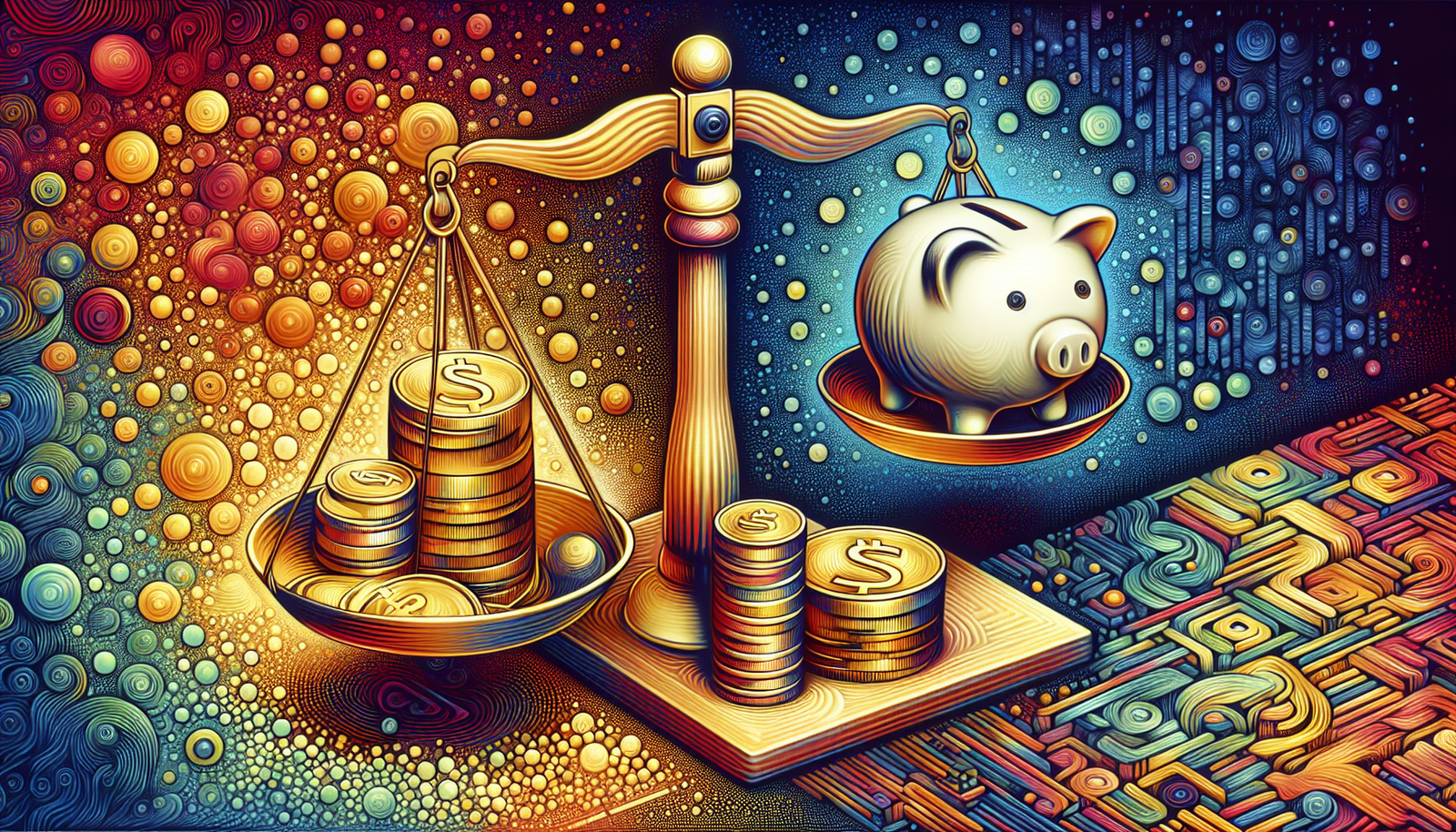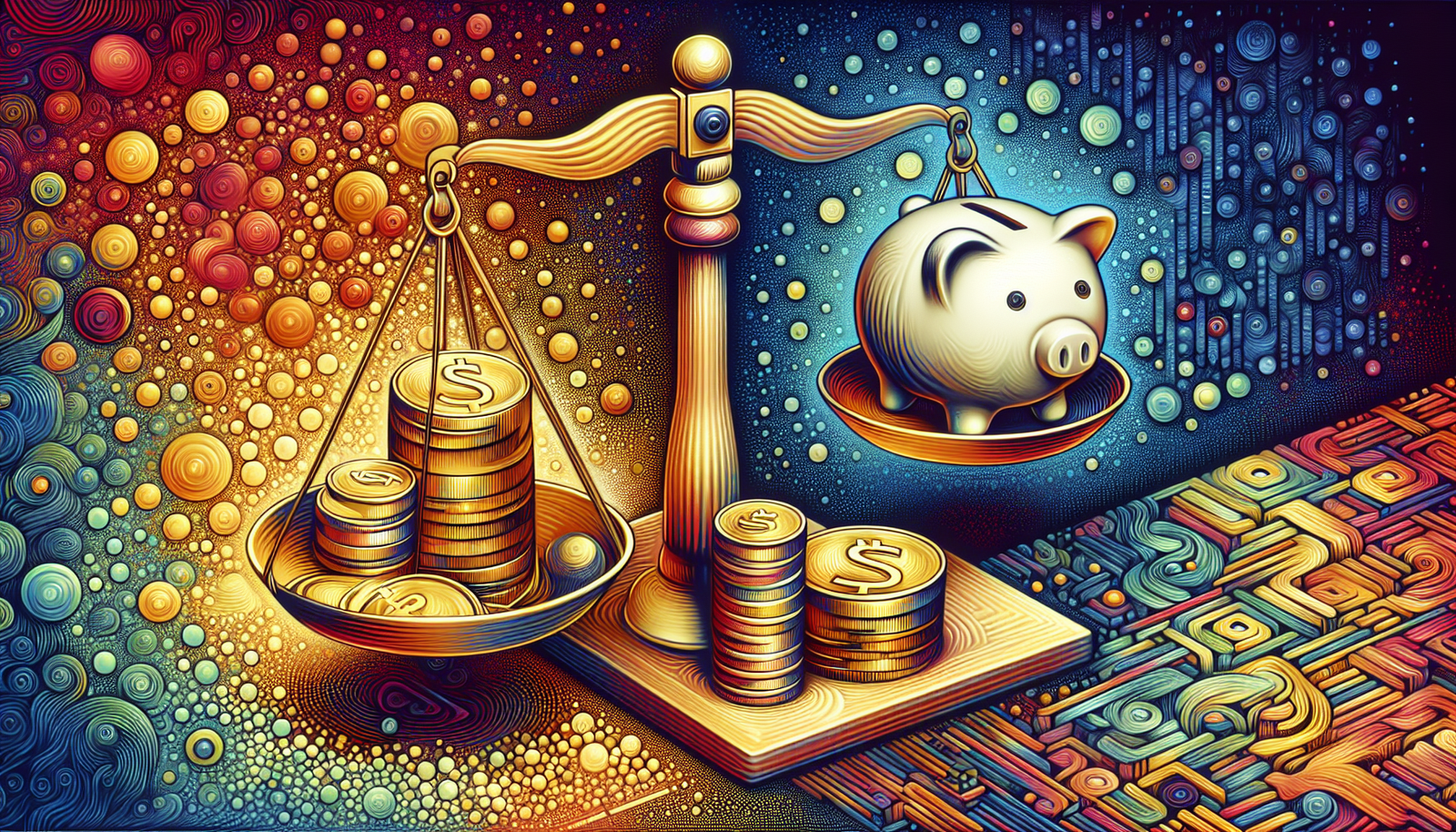
Embark on an intriguing journey that unravels the many roles money plays in your daily life and the broader economy. This article will serve as a compass, guiding you through the fundamental functions of money that keep our finances ticking smoothly. Explore the significance of money as a common medium of exchange, its role as a stable unit of account, its potential as a store of value, and its broader part in our global financial system.

The Concept of Money
Breathe in the very idea of money, for it’s far loftier than mere notes and coins in your wallet. It’s a concept, a symbol, a realization of value that has interwoven itself into the fabric of society.
Definition of Money
Money, dear reader, is a fascinatingly manifold object. In the heart of its definition, money is any concretely agreed-upon medium that exists widely as a method for trading goods and services. It’s a unit that reflects its worth including a flock of sheep, a wad of notes, or an invisible string of digital coding. Remember, the key is simply an agreement on its value.
Evolution of Money
The story of money is one of constant evolution. From the barter system of yesteryears, where goods were directly exchanged, to gold and silver coins shimmering with value, the character of money has changed incessantly. We slid from coins to paper notes, then checks, and finally to credit cards and electronic transfers – each step marked by greater convenience and raised eyebrows certainly. The chronicles of money are a mirror to humanity’s march of progress.
Types of Money
Now, as you deliberate on money, understand its various forms. There’s the tangible ‘commodity money’ (precious metals), ‘representative money’ (banknotes that can be exchanged for a fixed amount of a commodity) and the intangible ‘fiat money‘ (declared by government as the legal tender). Journey deeper and you’ll find the rapidly emerging digital cryptocurrencies as well. It’s an expansive territory, certainly, crafted to cater to the complexity of modern economics.
Primary Functions of Money
Take a moment to appreciate the intriguing roles that money plays.
Medium of Exchange
As a primary function, money stands tall as a ‘medium of exchange’. It facilitates the selling and buying of goods seamlessly, bridging the gap between buyer and seller. It is universally acceptable and extinguishes the fussiness of the barter system where a double coincidence of wants was necessary.
Measure of Value
Then arrives the role of money as a ‘measure of value’. This attribute of money is transformative. It turns every commodity and service into a numeric equation, making comparisons and calculations insightful and uncomplicated.
Standard of Deferred Payment
Let’s not forget the ‘standard of deferred payment’. Ah, debts, IOUs, loans, they rely on money as a commonly accepted unit to be paid back in the future. It ensures that we can consume now and pay later.
Secondary Functions of Money
Step further into the functional arena of money, discover its secondary moves.
Store of Value
Encounter first, money’s strength as a ‘store of value’. It is an entity in which individuals can put their purchasing power for future use. From an age-old gold coin hidden in an attic to digitized dollars in a bank account, money ensures that wealth is preserved.
Transfer of Value
Next, marvel at money’s efficiency as it acts as a ‘transfer of value’. Providing a smooth conduit to transmit wealth from one location to another, or from one person to another. It’s the silent messenger that carries your worth across space, making human interactions more dynamic.

Contingent Functions of Money
Deepen your understanding and meet money in its unique, contingent roles.
Basis of Credit
Delve into how money forms the ‘basis of credit’. Banks extend credits and consumers borrow, on the belief that money today, will hold its value tomorrow. It fuels the credit market, drives consumption, and stokes the engine of economy.
Liquidity
Contemplate money’s ease of convertibility, its ‘liquidity’. The most liquid asset humans devised, money can be easily turned into other goods and services, making transactions faster and economical life more flexible.
Equalization of Marginal Utilities
Lastly, money, surprisingly, enables the ‘equalization of marginal utilities’. The ability to hold money grants us the freedom to time our purchases, allowing us to make the most out of our spending, creating an economy of efficiency and balance.
Role of Money in the Economy
Witness the grandeur of money as it strides across the economy.
Facilitates Trade
Money facilitates trade, the lifeblood of an economy. It simplifies transactions, promotes specialization, and accelerates the cycle of production and consumption.
Measure of Economic Health
Money also functions as a ‘measure of economic health’. The flow of money through an economy, the ease of borrowing, interest rates, all together sketch the economic tableau, hinting at the economic well-being of a region.
Monetary Policy Impact
The behavior of money is significantly influenced by monetary policies. Central Banks tweak money supply and interest rates, impacting everything from inflation and unemployment, to consumption and growth.
The Exercise of Monetary Control
Advance to the realm of how monetary control is exercised.
Central Bank Role
The Central Bank takes the lead here, wielding money like a wand to navigate the monetary landscape. They control the money supply, set interest rates, and steer the economy.
Money Supply Control
Control of money supply, be it through open market operations, cash reserve ratios, or discount rates, is a tactical move to manage inflation and secure economic stability.
Interest Rates and Inflation
Toying with interest rates is another strategy the Central Banks deploy. The symphony between interest rates and inflation creates a melody that orchestrates financial harmony or dissonance.
Impact of Digitalization on Money Functions
The dawn of the digital era has ushered in a revolution in money’s functions.
Fintech Influence
Fintech innovations have simplified monetary transactions, made financial services more accessible, and banking incredibly convenient. With just a few taps and swipes, you’re transacting across continents.
Cryptocurrencies
Cryptocurrencies have pushed the boundaries of how we perceive money. An encrypted, decentralized, and highly secure form of digital cash that could potentially redefine our relationship with money.
Online Transactions
Online transactions are accelerating the pace of commerce, making it possible for consumers to shop from the comfort of their homes and for businesses to operate without geographical limitations.
Challenges in Keeping Money’s Functionality
Keeping money’s functionality intact, however, has its own share of challenges.
Inflation
How can one ensure that a dollar today will sustain its worth tomorrow? Inflation, the erosion of purchasing power, poses a persistent threat to money’s steadfast stability.
Unemployment
Then, there’s the ugly specter of unemployment. Lack of jobs leads to less income, less spending, and less circulation of money, skewing its core functionality.
Economic Inequality
Economic inequality, another challenge, disturbs the equitable distribution and circulation of money, concentrating economic power among a select few and stifling broader economic growth.
Money in International Trade
Cross borders and explore money’s role in international trade.
Role of Foreign Exchange
Foreign exchange, the pivot around which international transactions revolve, brings different currencies onto a common platform. This enables companies and individuals to do business across regions seamlessly.
Impact of Exchange Rates
Exchange rates subtly dictate international trade practices. They affect export and import prices, influence investment decisions, and can make or break the economic competitiveness of a nation.
Role of International Banks
International banks lubricate the wheels of global commerce. They facilitate foreign exchange deals, provide necessary finance, and manage the risks of international transactions.
The Future of Money
Finally. Look ahead and ponder over the exciting future of money.
Digital Currencies
Digital currencies are no longer merely a subject of speculative fiction. They are being seriously contemplated, experimented with, and could soon become the norm of doing business.
Social Credit Systems
Social credit systems, where individuals are scored based on their social behavior, and rewarded accordingly, could redefine our conception of money.
Challenges and Benefits of Cashless Economy
The potential future as a cashless economy is tantalizing. It promises greater convenience, transparency, and efficiency. However, it also brings with it challenges, like cybersecurity concerns and issues of financial inclusion.
In the realm of ever-evolving money, dear reader, you are not merely a spectator but an active participant shaping its journey. So as you exchange, earn, spend, or save, ponder upon the tremendous power and potential of this truly remarkable human invention – money.
Comments (9)
Kwai Beğenisays:
February 6, 2024 at 12:40 PMTrustpilot inceleme satın almak işletmenizi büyütecek. Trustpilot inceleme satın al ve müşteri güvenini artırın.
Leland Gorczanysays:
February 8, 2024 at 7:41 AMof course like your website but you have to check the spelling on several of your posts A number of them are rife with spelling issues and I in finding it very troublesome to inform the reality on the other hand I will certainly come back again
Marlin Huelsays:
February 12, 2024 at 4:59 AMyou are in reality a just right webmaster The site loading velocity is incredible It seems that you are doing any unique trick In addition The contents are masterwork you have performed a wonderful task on this topic
Ulices Spinkasays:
February 13, 2024 at 3:28 PMMy brother recommended I might like this web site He was totally right This post actually made my day You cannt imagine just how much time I had spent for this information Thanks
Eino Metzsays:
February 13, 2024 at 4:10 PMI have been browsing online more than three hours today yet I never found any interesting article like yours It is pretty worth enough for me In my view if all website owners and bloggers made good content as you did the internet will be a lot more useful than ever before
nfcsays:
February 14, 2024 at 6:40 PMYour blog is a gratitude sanctuary, offering solace and comfort in the embrace of thankfulness. Thank you for the refuge!
Elena Mortonsays:
March 10, 2024 at 9:28 AMMy brother recommended I might like this web site. He was totally right. This post actually made my day. You cann’t imagine just how much time I had spent for this information! Thanks!
rajaspinsays:
March 30, 2024 at 3:20 AMThe article’s exploration of the cultural significance of the topic is enlightening.
Kimberly Lehnersays:
March 30, 2024 at 11:51 AMYour writing is like a breath of fresh air in the often stale world of online content. Your unique perspective and engaging style set you apart from the crowd. Thank you for sharing your talents with us.